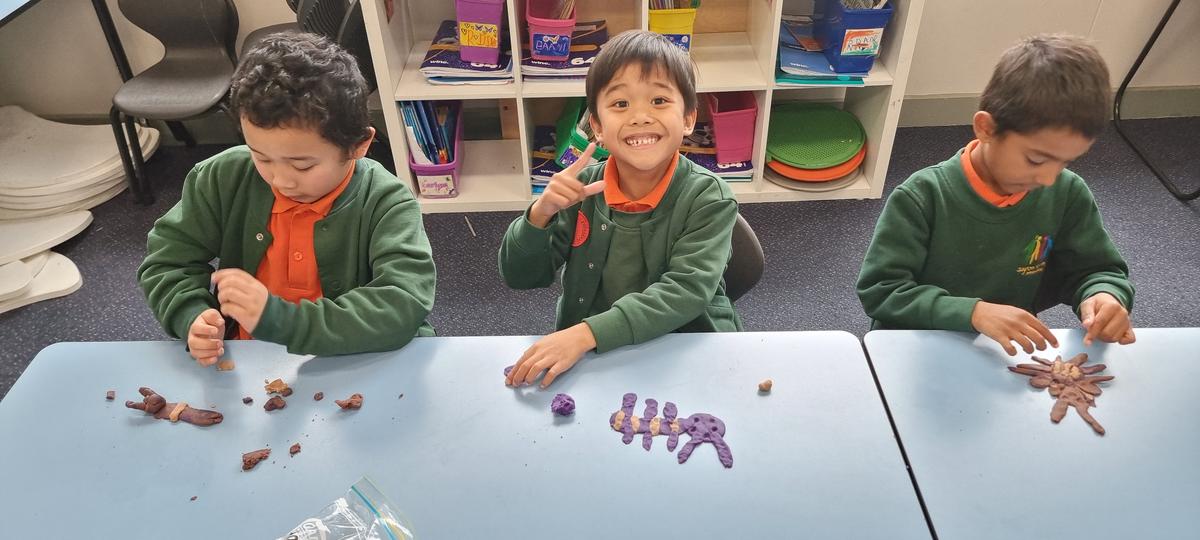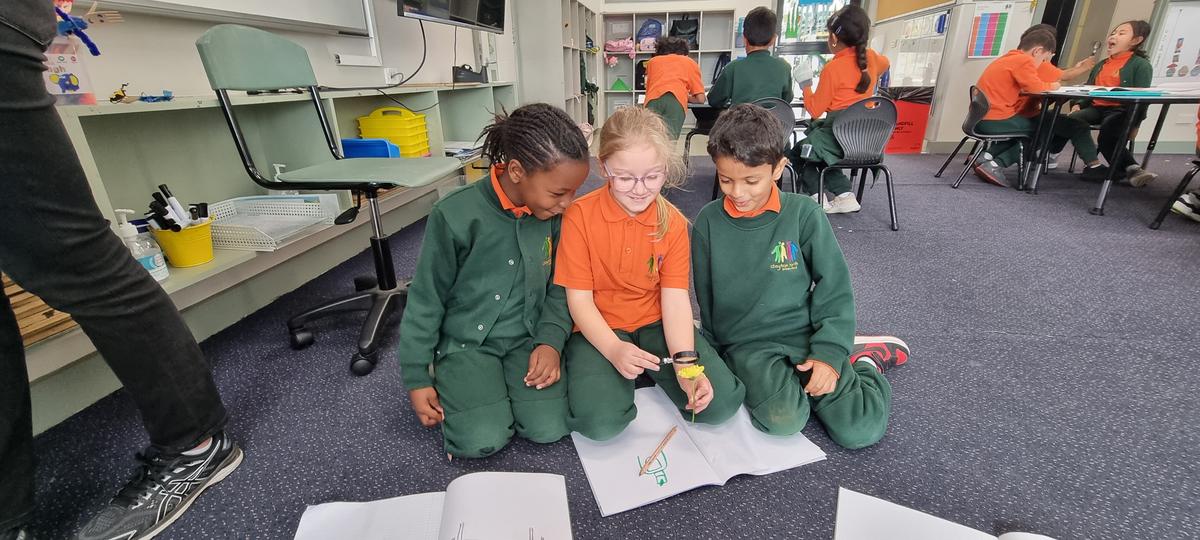Year 1/2 News
Hourig, Dilan and Naomi

Year 1/2 News
Hourig, Dilan and Naomi
We’re excited to be back for another fantastic term of learning in Year 1/2! This term, students will explore fascinating topics in Inquiry, build on their literacy and numeracy skills, and take part in engaging events like our Melbourne Museum excursion and Teddy Bear Hospital incursion. We’re looking forward to a busy and rewarding term ahead!
On Wednesday, 6th August, our Year 1/2 students had an exciting hands-on learning experience when the Monash University Teddy Bear Hospital visited our school! Monash medical, nursing, and allied health students guided children through a fun and interactive day. This allowed students to explore what happens at a doctor’s visit in a playful, safe environment while reducing fears associated with hospitals or “white-coat anxiety" and build healthy habits in a playful way.
During the incursion, Year 1/2 students brought their beloved teddy bears (or other soft toys) to participate in fun, role-play health stations. Children rotated through stations such as a Teddy GP Clinic, Teddy X‑Ray, Teddy Surgery, and a hygiene station where they practised proper handwashing and learned about healthy habits like nutrition and physical activity. The program also introduced “Big Ted,” who handed out high‑fives and cuddles, making the occasion memorable and fun.
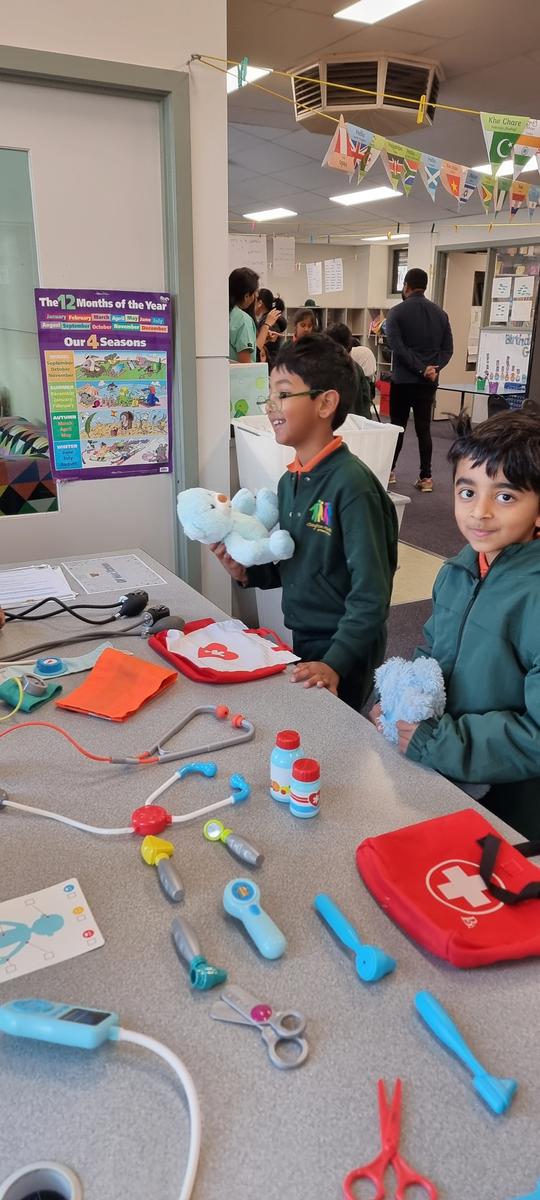
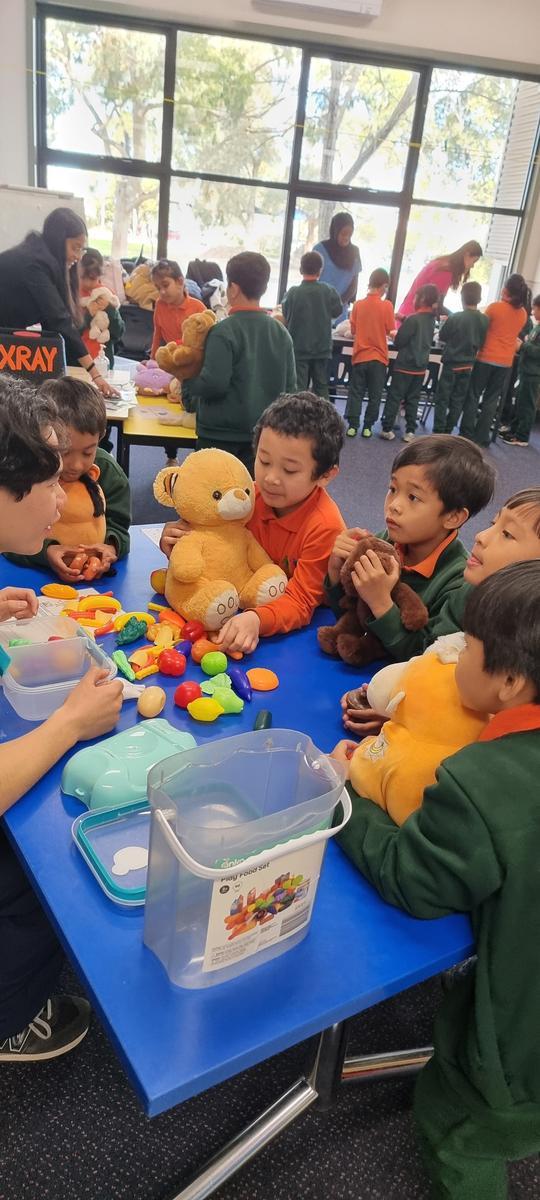
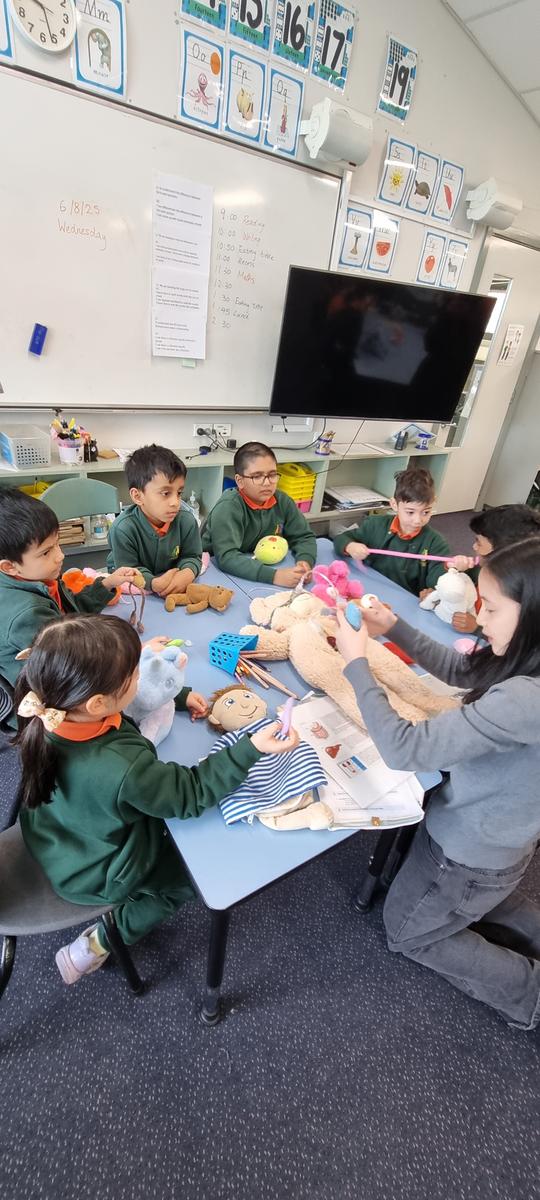
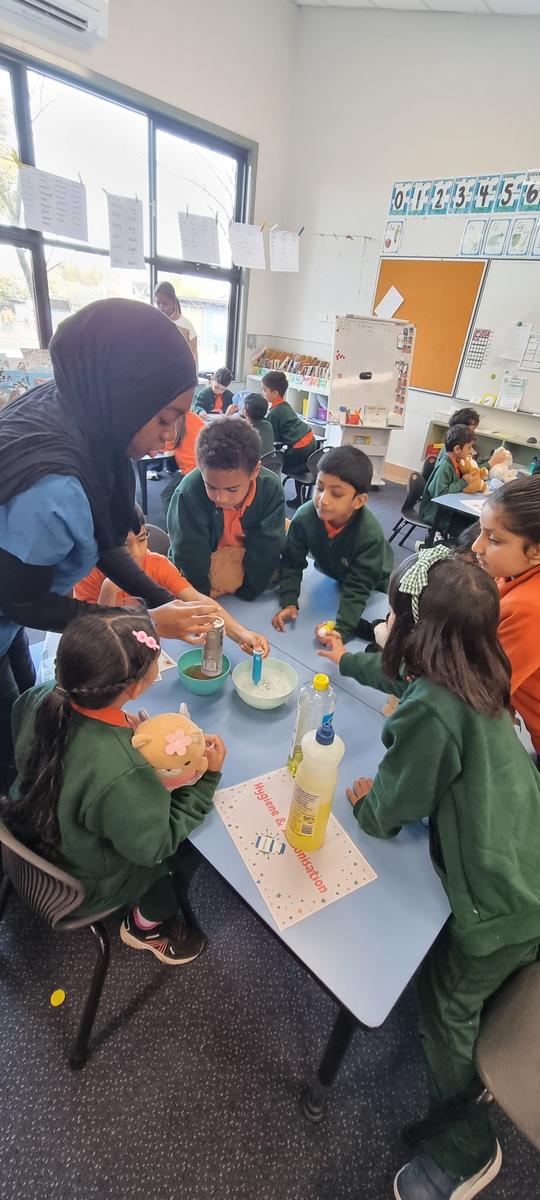




The incursion not only supported our wellbeing curriculum, but also encouraged empathy and communication skills. Through acting as carers for their teddy “patients,” students practised asking simple health questions, giving explanation, and supporting each other in caring for unwell toys.
Our students left with big smiles and even bigger confidence! Many commented that their teddies felt safe and cared for and that the hospital experience wasn't scary after all. We’re immensely grateful to the Monash students for helping make healthcare education joyful and welcoming. It’s a memorable experience that supports healthy minds and healthy futures—just what our school strives for.
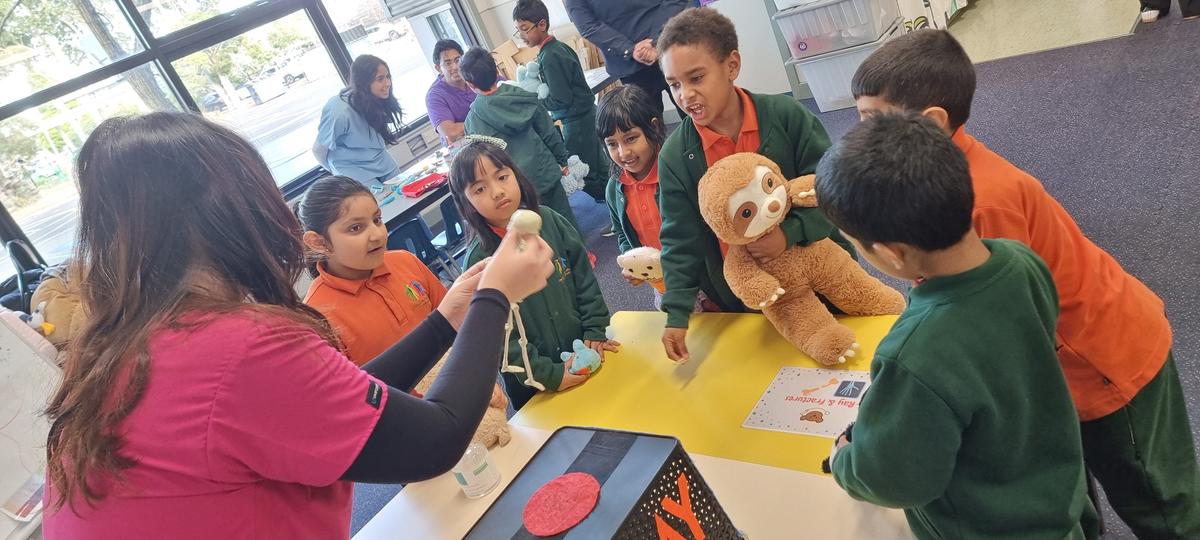
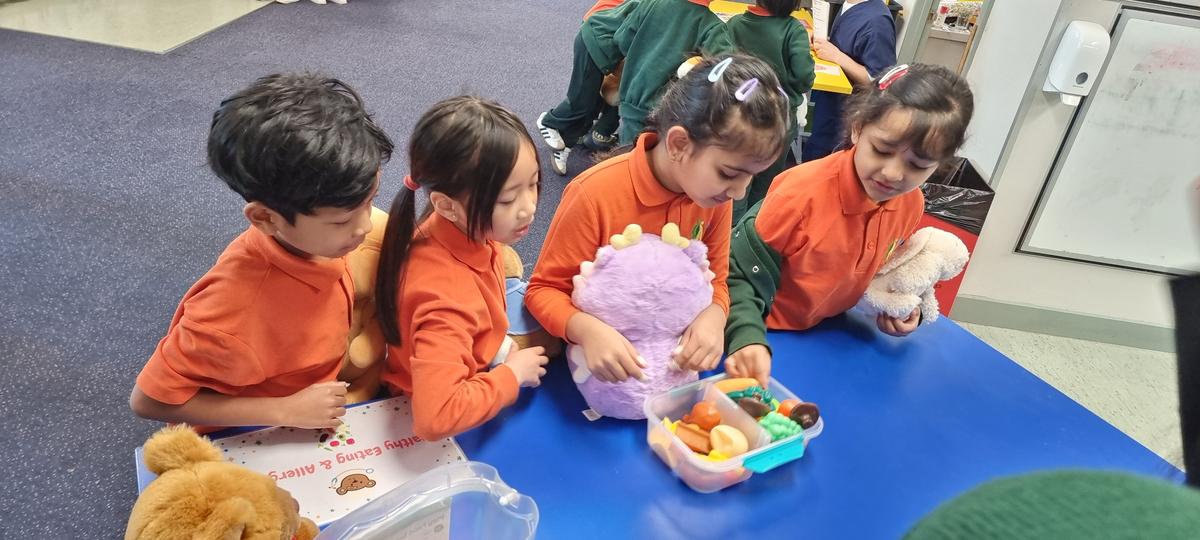
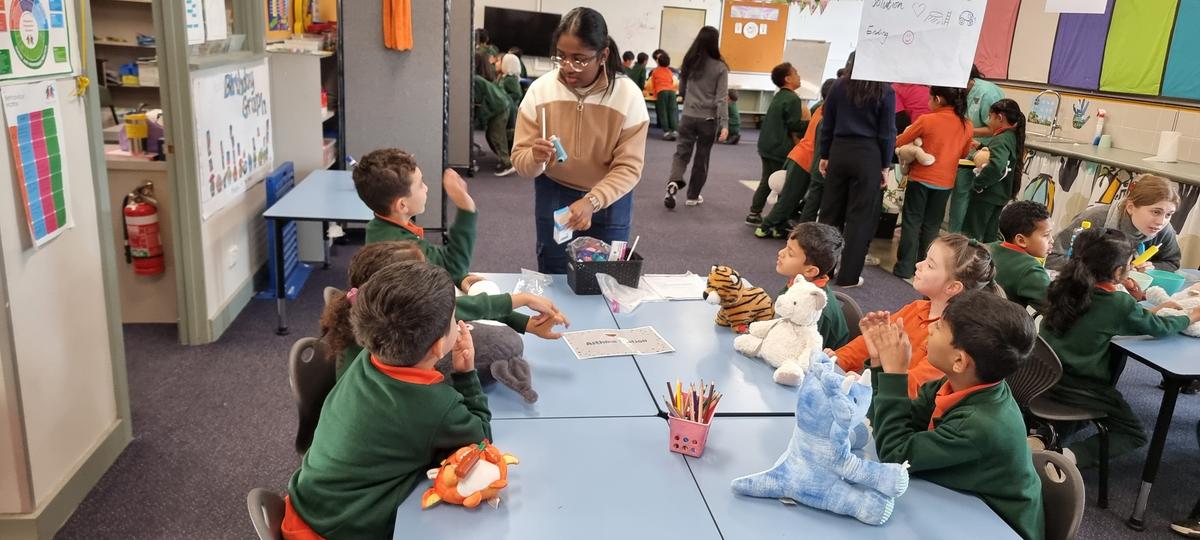
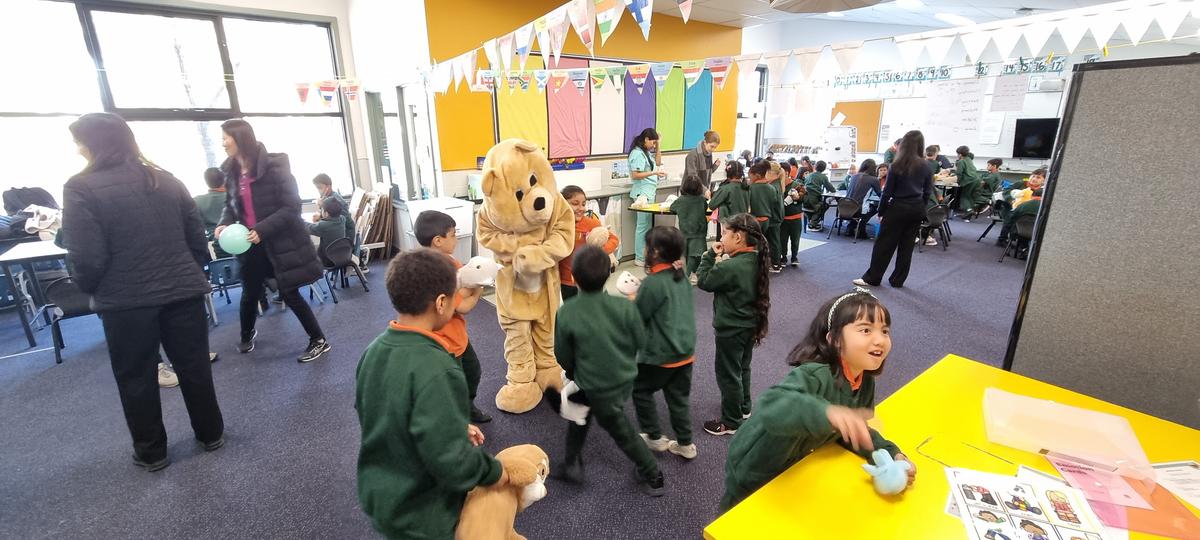
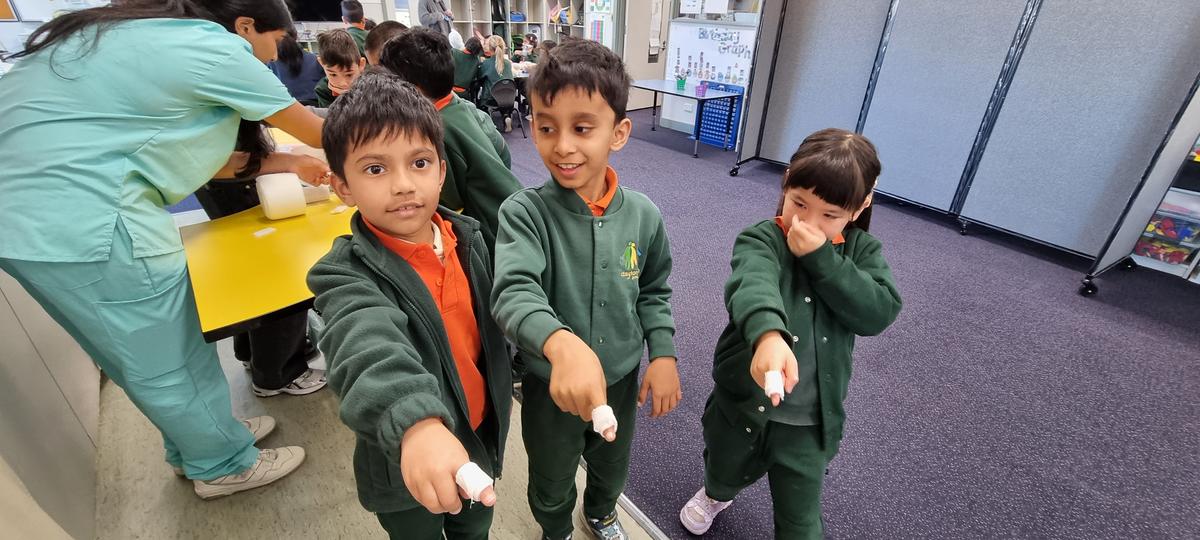
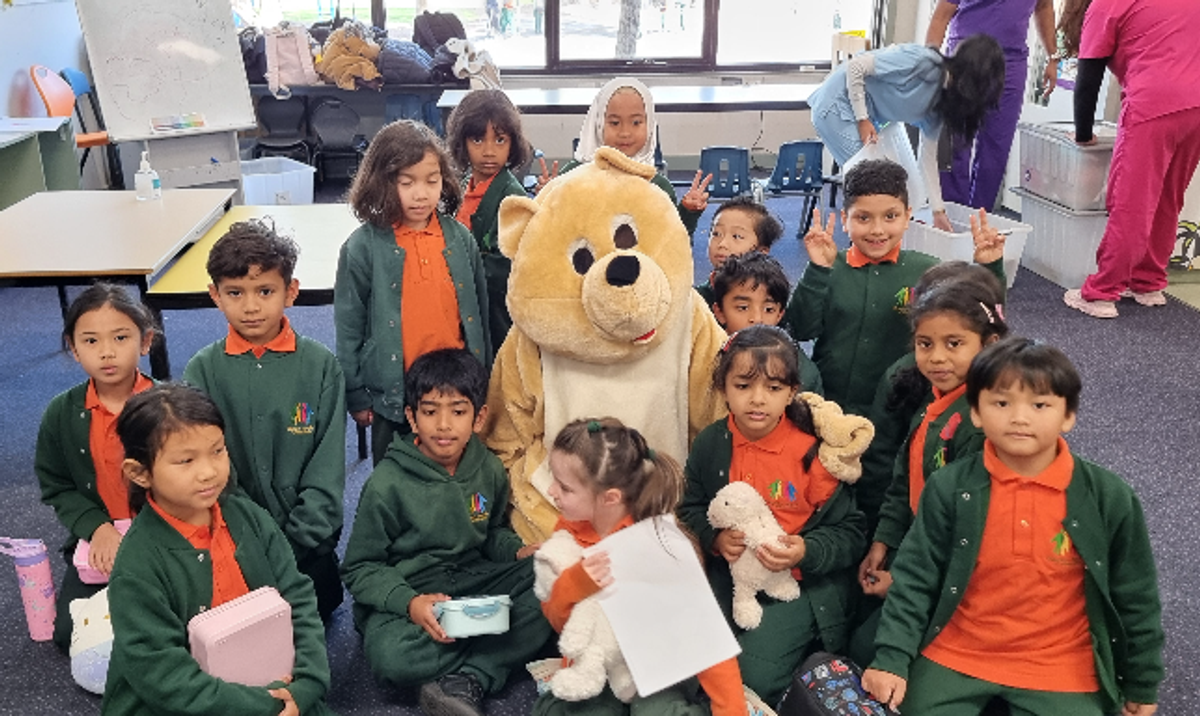






A heartfelt thank you to the Monash Teddy Bear Hospital volunteers, as well as our teachers, for making this special day possible. The children not only had fun caring for their toy patients—but they also took home important lessons about health, hygiene, and what happens when we visit medical professionals.
In Literacy, students have been reading, writing and spelling words with /our/ and /or/ sounds including words with ow, ou, aw, au and ore. We’re also continuing our work with homophones and using our prior knowledge to make connections with texts. Students are using mini whiteboards to write words by sounding out the letter and digraphs and blending the sounds to read the words. Students have been writing recounts about their holidays, practising reading their work aloud to check for meaning and fluency.
This week, we begun writing information texts, focusing on how to research a topic and structure our writing with an opening statement, supporting facts, and a closing statement. Students are learning how to gather ideas from different sources, by choosing a topic of their own interest and using non-fiction book or devices to research and find facts about their topic. They are learning to organise their thinking and ideas clearly and write this in sequence that makes sense. Students are building confidence in writing for different purposes and continuing to develop strategies to become more independent readers and writers.
In Maths, students are developing their understanding of multiplication and division through hands-on activities and problem-solving tasks. We are focusing on building fluency with basic facts, including doubling and halving numbers. Students are learning to represent multiplication as equal groups and arrays, and division as sharing and grouping. These skills support number sense and set the foundation for more advanced operations.
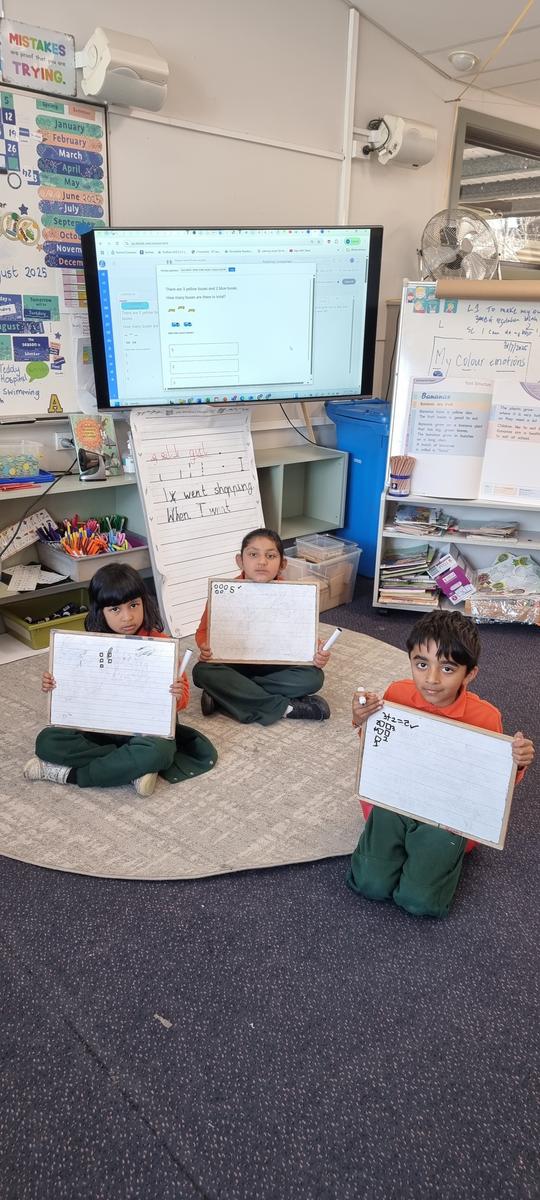

In Measurement, students are learning to measure capacity and mass using informal units such as hand spans, blocks, cups, and classroom objects. They are estimating, comparing, and recording measurements, and learning to use everyday language to describe size, weight, and volume. These practical experiences help students build a strong understanding of measurement concepts and apply them to real-life contexts in a fun and engaging way. Students are using objects to make their own measuring tools such as scales.
Our Inquiry unit this term is Sharing the Planet, with a focus on insects (minibeasts) and the important roles they play in our environment. Students are learning about the different types of insects, their habitats, and how they help ecosystems thrive. We are exploring why insects are essential to our world and how we can care for and protect them.
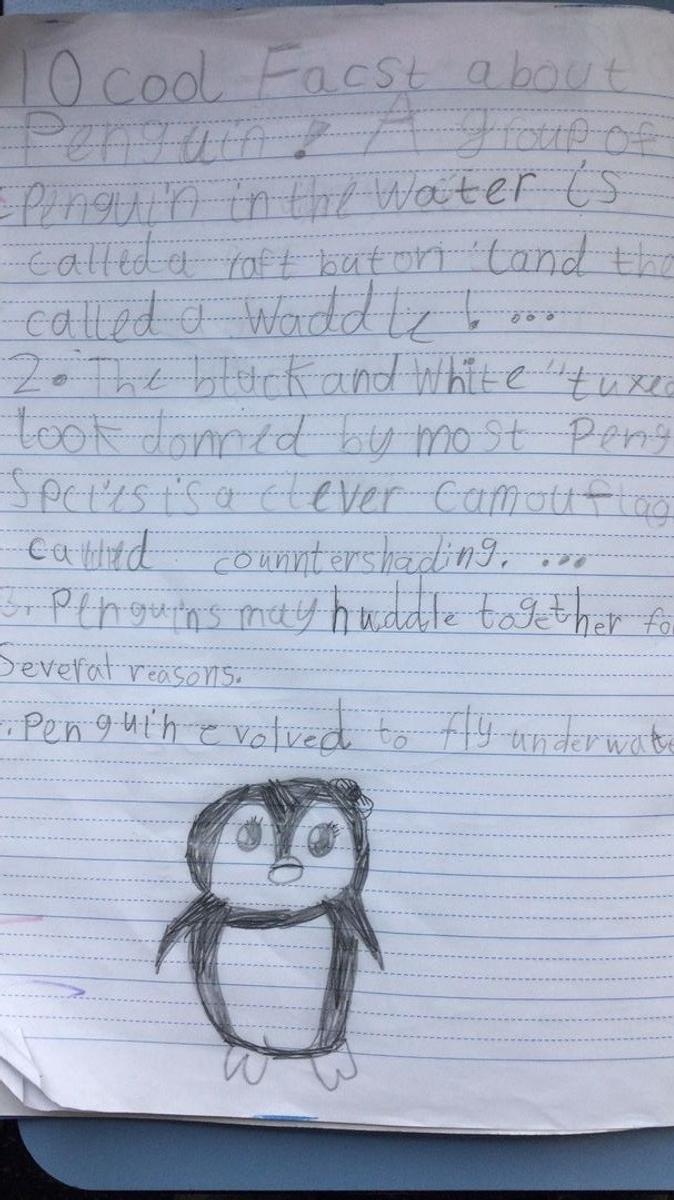
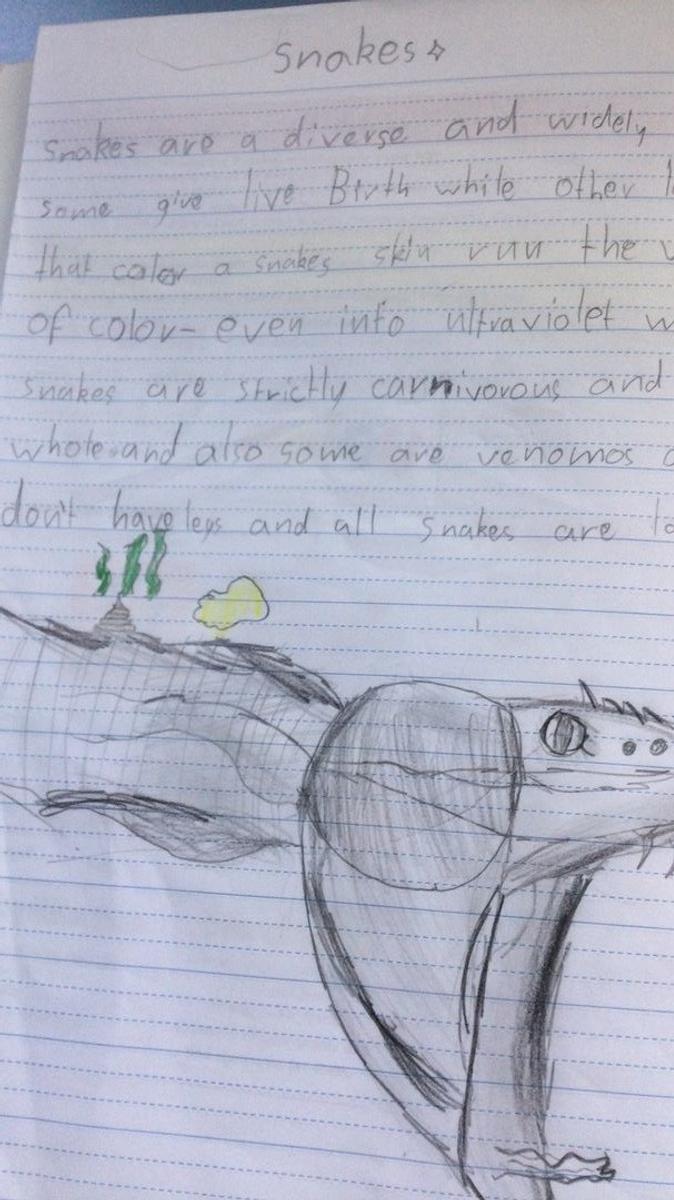
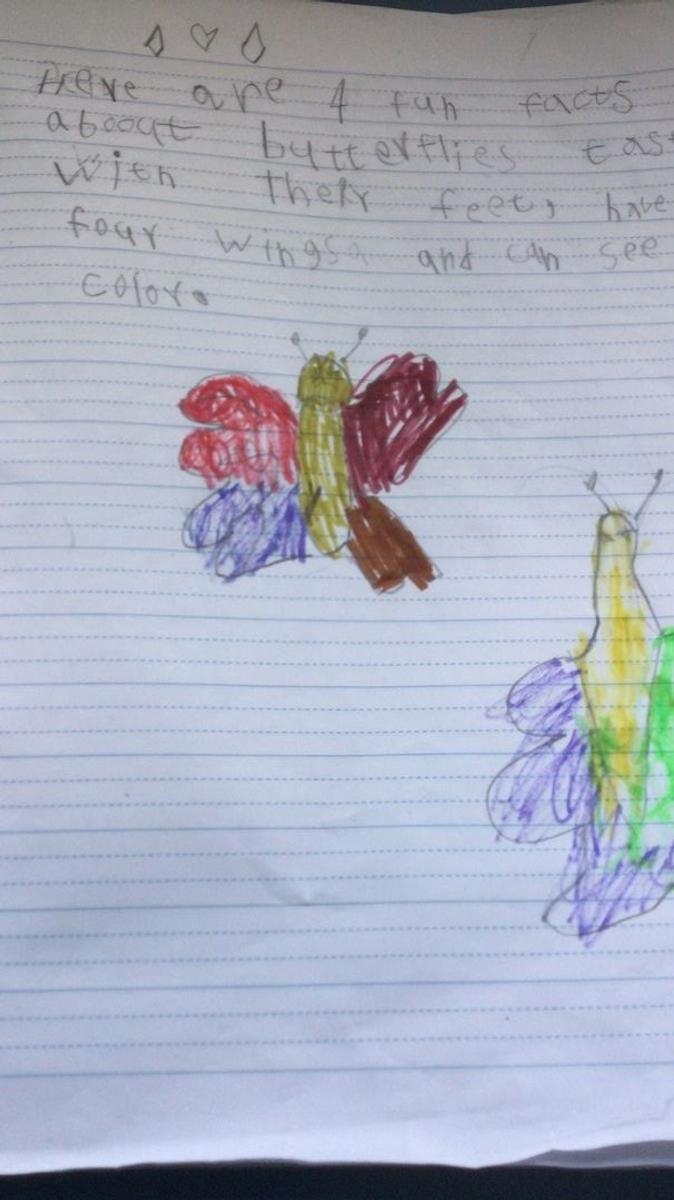
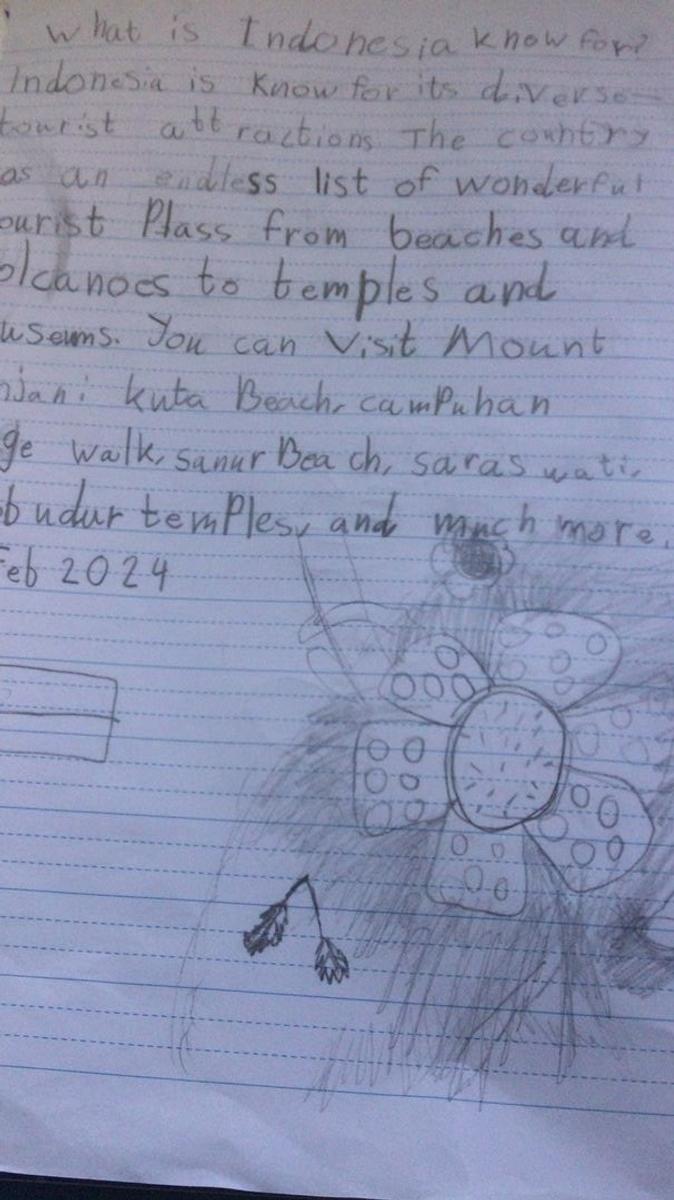




A special focus of our learning is on bees. Students are investigating the unique features of bees, their lifecycle, and how they make honey. We are discovering just how important bees are for pollination and food production. Through hands-on activities, research, and discussions, students are developing a deeper understanding of how living things are connected and how we share the planet with other creatures. In connection with insects, specifically bees, students have been exploring the parts of a flower through hands-on investigation. Working in small science groups, students examined real flowers with a magnifying, drawing both the outside and inside focusing closely on the details. Students used a labelled diagram to help them revisit their drawings and identify each part and then dissect the flower to look at its distinct features. This activity supported students in building their scientific knowledge through observation, discussion, and research.
